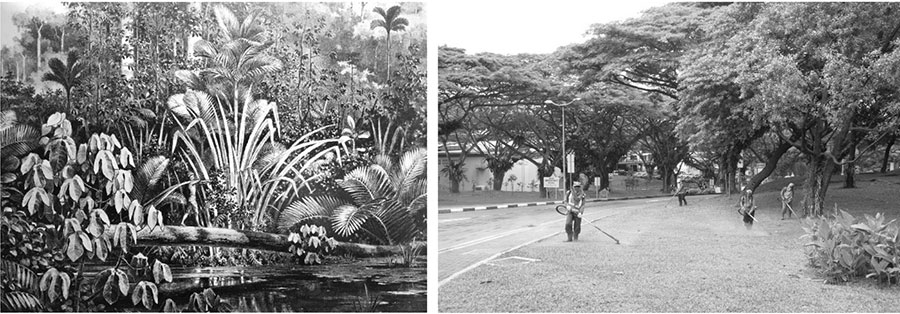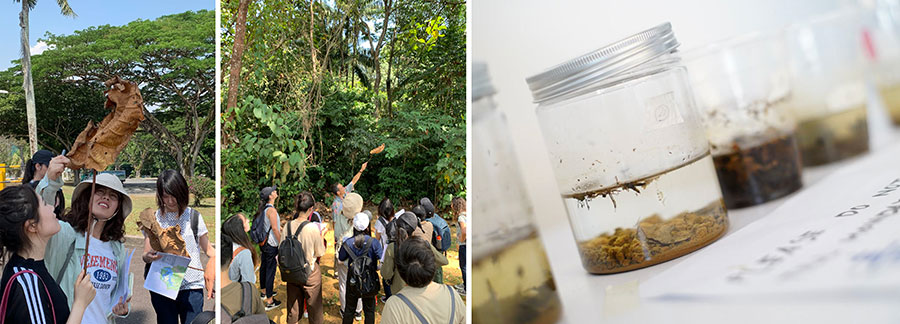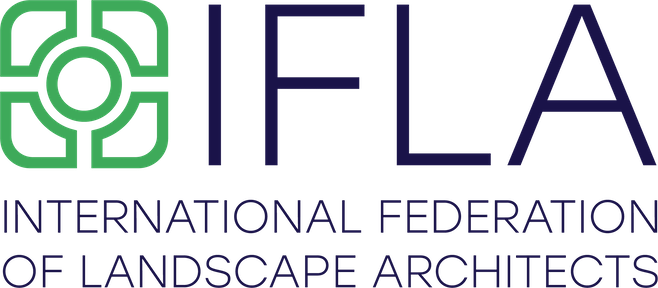Landscape Architects in the Conversation of... Tropical Urban Ecology

Img 1 The pristine tropical forest in Singapore, by Eugen von Ransonnet, Chromolithograph Published in Eugen von Ransonnet, Skizzen aus Singapur und Djohor, 1876 (Left) and Grass cutting is a common biweekly maintenance activity in typical urban green areas in Singapore (Right).
Rewilding Singapore is the theme for the ongoing MLA landscape architectural studio at National University of Singapore. Learning from Singapore’s remaining tropical rain forest; its ecosystem, structure, and water-nutrient cycle, our studio agenda is to transplant such natural principals into urban areas. How can we accumulate ecological value for existing urban green space aside from simply pledging areas for green? Can landscape architects propose design prototypes that can infuse greater ecological functions and diversity into the urban context? The studio seeks to answer these questions by taking 1km buffer area from the Central Catchment Nature Reserve (CCNR) in Singapore – the largest nature reserve that sits at the heart of Singapore.

Img 2; Site visit to Upper Seletar Reservoir Park (within CCNR) and site’s soil permeability testing
Semester-long design studio covers site visits, lecture series, and design development phases (desk crits, pin-ups and review sessions) where students learn the underlying driving factors of forest ecology and urban activities, as well as compelling narrative to bridge the research and design components altogether.

Img 3; Pin-up session and site modeling (photo credit; Ervine Lin)
Challenges for students are in multi-faceted; how do wild-life co-exist with urban dwellers? How to design and integrate ecological “time-span” in-relation to the speed of human activities? Considering the space scarcity in Singapore, how do you accommodate space for natural elements, and why we need to do that? Sound research and onsite analysis should be the reasoning to answer these challenging questions, and NUS MLA program emphasizes this process of design thinking.
By Kenya Endo, (Visiting Fellow, National University of Singapore)

